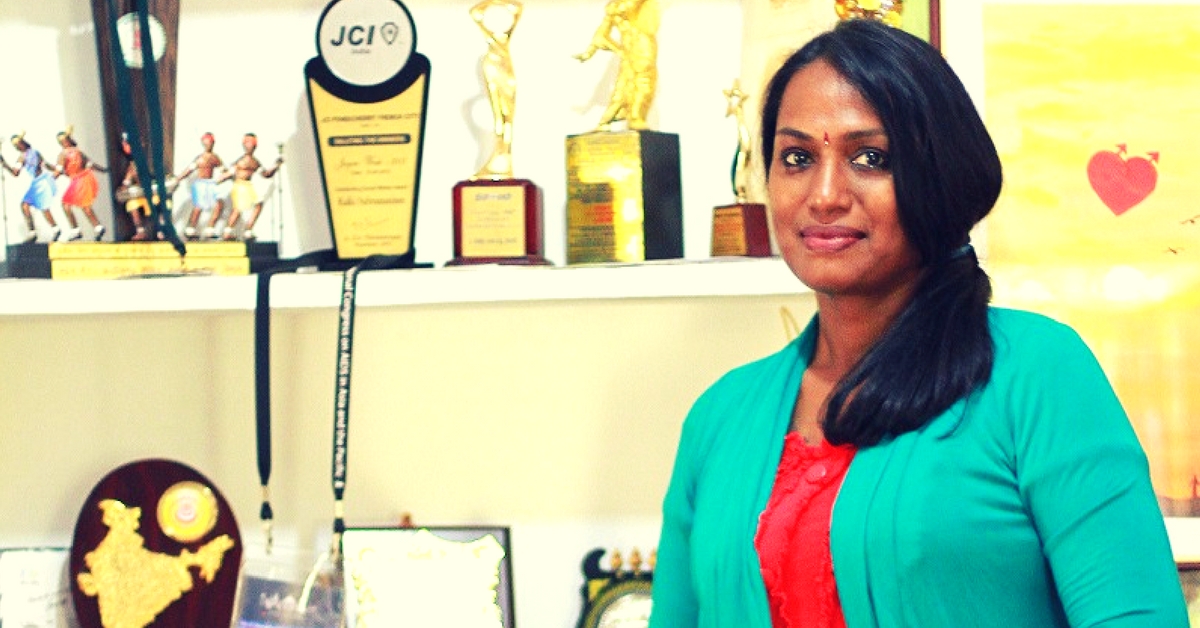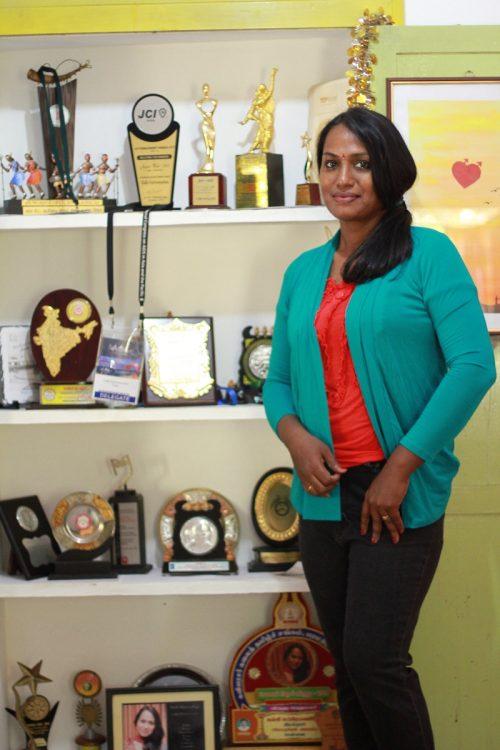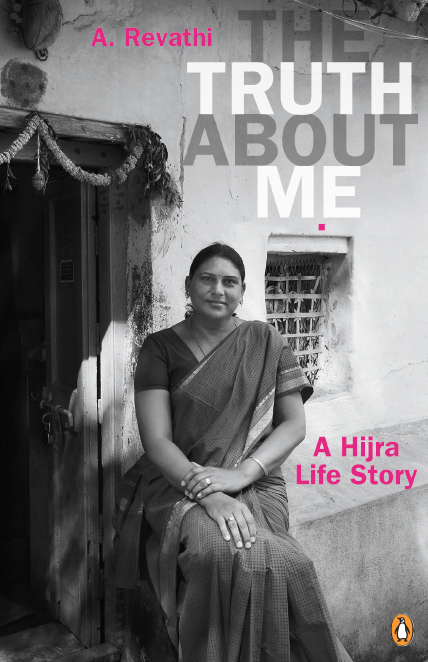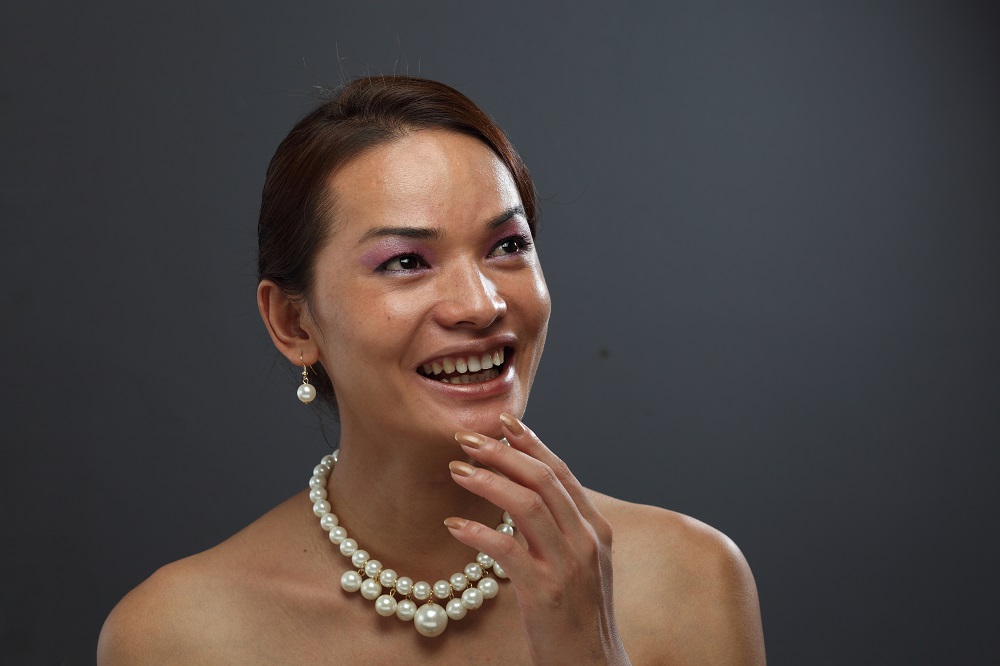How Kalki Subramaniam & Many Others Have Fought Tough Odds to Achieve Success and Inspire Others
From being ridiculed at school, to obtaining a double postgraduate degree and starting an organization that works for the empowerment of transgender persons – this is the story of Kalki Subramaniam and others who are taking up similar fights.

From being ridiculed at school, to obtaining a double postgraduate degree and starting an organization that works for the empowerment of transgender persons – this is the story of Kalki Subramaniam and others who are taking up similar fights.
Being a proud transgender cannot be one of the easiest decisions to stand by but Kalki Subramaniam has done it because living a confused life was even more difficult. Kalki’s moment of truth came when she was 13 but when her family came to know all hell broke loose. For the longest time she faced rejection and rebuke at every step of the way but she channelised all the disapproval to make something of herself.
Today, as a noted actor-writer-activist she is one of the few transgenders in India who are lauded for their achievements in the face of tough odds. But even as she enjoys her success she is acutely aware that “for the majority nothing has really changed, at least where social attitudes are concerned”.

According to Census 2011, there are nearly 4.9 lakh transgender persons in India but their numbers can’t be considered definitive because most parents are unwilling to accept a transgender child; they can’t come to terms with the fact that their offspring is unable to identify with his/her sex at birth and live in the hope that if ignored they would “miraculously” change their mind. However, there is much more to trans-persons than their gender as women like Subramaniam, or A. Revathi, a writer, or Gunavathy, a security guard at the newborn ward of a government hospital in Tamil Nadu, have amply shown. Abilities and qualities are as much a part of one’s identity as one’s gender.
It’s important to note that not all transgender persons can be called eunuchs or kinnars and being transgender is not the same as being lesbian, gay or bisexual. Simply put, a transgender is a girl or boy born in a boy or girl’s body. They can be straight, gay, lesbian or bisexual; their sexual orientation is entirely up to them. Most transgender persons struggle with this identity crisis as few are able to pluck the courage to acknowledge the fact that they are different. That’s because society, whether in India or abroad, gives a hard time to those who don’t follow societal norms.
Few would know that transgender rights first took centrestage when British model Caroline “Tula” Cossey was cast as a Bond girl in the 1981 Roger Moore starrer For Your Eyes Only. Her performance grabbed eyeballs till the British tabloid ‘News of the World’ came out with a front page headline that read ‘James Bond Girl Was a Boy’. Initially, Tula was so upset that she even contemplated suicide. But she eventually decided to fight back. She petitioned for changes in the laws regarding transsexuals; her petition even reached the European Court of Human Rights. She fought till 1989 when the court legally recognised her as a woman! Thereafter, she went onto have a successful modelling career, was featured in several magazines including the cover of Playboy, wrote three books and became an icon of sorts for the transgender community.
Unfortunately, even now, few transgenders are able to achieve such levels of acceptance and recognition. Indeed, in India the transgenders are a particularly marginalised group which has to fight to secure its rights.

Usually abandoned by their family and friends, for them even the basics like the right to education and employment are hard to come by forcing many to take to the streets early as beggars and prostitutes, abused and exploited. Formal change came as recent as 2013, when the Supreme Court, in a landmark judgment, “affirmed the constitutional rights and freedoms of transgender persons, including those who identify as third gender and those who identify in a gender opposite to their biological sex”. The Court declared that no one can be discriminated against on the grounds of sexual orientation, which has opened up the gateway to seeking admission in educational institutions and employment as the ‘third gender’. Significantly, it has directed the central government to devise social welfare schemes for third gender community and run a public awareness campaign to erase social stigma.
“While this is really encouraging it will take time before there is some noticeable change. There are thousands who still get the boot from the family and society. Maybe a few have finally started realising that we too are human beings who deserve an equal life,” remarks Subramaniam. She insists she’s not being pessimistic, “just real”. After all, thus far, those who have managed to carve their own niche have done so despite the many hurdles that came their way.
A double postgraduate – she has one degree in Journalism and Mass Communication and another in the International Relations – Subramaniam recalls how in a conservative South Indian Brahmin family of only daughters, when the doctor first told the elders that her mother had given birth to a baby boy there was unprecedented joy and celebration. Yet, by the time the child hit puberty he realised that he couldn’t identify with being a boy and shared this perplexing feeling with his mother. Of course, he was told to “forget about it”. Ridicule and reproach followed him through school and college, as he was shamed for having feminine traits; he was not one of the girls and the boys refused to be friends with him. “Isolation made me stronger. As I was alone, the only recourse left to me was to lose myself in studies. Coming from a family of highly educated people, academics came naturally to me. It is education that has really helped me to become who I am,” she affirms.
Once independent Subramaniam took a stand – she saved up money from her stint at a multi-national company and underwent SRS (Sex Reassignment Surgery). “Life became little easy after that,” she says. One of the first things she did after this surgery was to set up Sahodari Foundation, an organisation which works for the social, economic and political empowerment of transgender persons in the country.
Since 2008, through Sahodari, Subramaniam has been reaching out to the transgender community and their families. Be it an economic empowerment programme or a performance arts project or an exclusive matrimonial website, she has introduced several initiatives that empower a trans-person to lead a full life. Personally, too, she has been blazing a trail – besides being an invitee to several US universities to talk about the transgender experience she is one of Facebook’s 12 inspiring women who have used social media as a community empowerment platform and also the lead in a feature film Narthaki.
Like Subramaniam, Anjali, a transgender model from Nepal, has her own inspiring story, the subject of a 50 minute documentary Anjali by short filmmaker Mohan Rai.

It was the toast of this year’s Kashish Mumbai International Queer Film Festival. Born as a boy, Nabin Waiba, in Nuwakot, Nepal, Anjali truly discovered the woman in her when she went to Kathmandu for higher studies. Although she is a well-known model in her country, Anjali does find it tough to get assignments even now.
Then there’s A. Revathi, a writer, whose non government organisation Sangama has been consistently working for the rights of the community and other sexual minorities. Born Doraisamy, she has faced ostracism from her family, lived on the streets and been assaulted emotionally and physically before she was able to stand on her own feet. She understands the value of camaraderie and support and believes that it will be a while before trans-people will be able to find their own space in society. She astutely concludes, “May be some of us have been able to break the shackles but life is largely hellish for transgenders. A court ruling can’t transform the way people think; the society needs to accept us wholeheartedly.”
Like this story? Or have something to share? Write to us: [email protected], or connect with us on Facebook and Twitter (@thebetterindia).
If you found our stories insightful, informative, or even just enjoyable, we invite you to consider making a voluntary payment to support the work we do at The Better India. Your contribution helps us continue producing quality content that educates, inspires, and drives positive change.
Choose one of the payment options below for your contribution-
By paying for the stories you value, you directly contribute to sustaining our efforts focused on making a difference in the world. Together, let’s ensure that impactful stories continue to be told and shared, enriching lives and communities alike.
Thank you for your support. Here are some frequently asked questions you might find helpful to know why you are contributing?


This story made me
-
97
-
121
-
89
-
167











